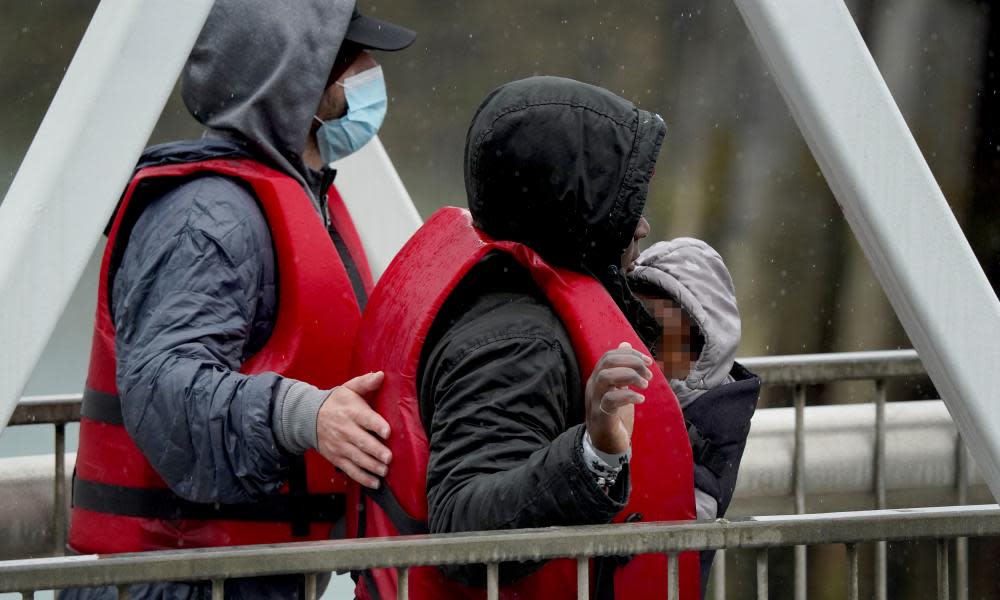Refugees being sent to areas of UK with little or no legal aid, study finds

Refugees fleeing violence and persecution, including those who face being deported to Rwanda, risk being denied expert advice because many areas of the UK have little or no legal aid provision for people seeking asylum, a major report has found.
The study found that some towns and cities to which people seeking asylum are dispersed, including Plymouth, Stoke and Hull, had only one legal aid caseworker, while another, Swindon, had one provider with a legal aid contract but provided no provision because it could not recruit a caseworker.
The 257-page report, commissioned by Refugee Action, also found that there was no provision in most of North Yorkshire. A reception centre is being developed there in Linton-on-Ouse for people seeking asylum who are not sent to Rwanda under the government’s New Plan for Immigration.
It concluded that every region in the UK bar London had a huge shortfall in access to free legal advice.
Tim Naor Hilton, the chief executive of Refugee Action, said: “It’s hugely concerning that accessing justice is so difficult at a time when the government is tearing up its legal obligations to refugees.
“People who do not get advice are put at a huge disadvantage when their claim for asylum is being assessed.
“Too many errors are already made on asylum decisions. With refugees being sent to remote accommodation centres, 5,000 miles away to Rwanda, or home to face violence and persecution, it’s vital they can get legal advice.”
The charity says the lack of access is particularly concerning in light of the rise in the number of people waiting on an initial asylum claim, from 65,000 at the end of 2020 to 100,500 at the end of last year. Additionally, almost half of appeals against negative asylum decisions were successful last year.
Local authority areas including Cumbria, Durham, Gloucestershire, Somerset, Surrey, West Sussex, Norfolk, Suffolk, Essex, and Lincolnshire were found to have no provision at all, while there was a near-total lack of legal aid professionals along the south coast.
Unaccompanied asylum-seeking children were already being sent to local authorities in some of these “legal aid deserts”, the report found.
Stoke-on-Trent – a local authority with an agreement to take people seeking asylum – was said to be facing “an especially severe shortage of legal aid and other provision, within a context of high demand from asylum dispersal and other migration and high levels of socio-economic deprivation, which affects both their ability to recruit and retain staff and their would-be clients’ ability to access services”.
While Scotland was found to have good provision for asylum legal aid, it was very limited for other types of immigration case – which are generally excluded from legal aid in England and Wales – and there was almost no provision outside Glasgow.
Dr Jo Wilding, a legal aid expert who authored the report after collecting data last year, said the deficit in legal aid “means that people are missing out on refugee status or immigration status that they’re entitled to”.
She made several recommendations to relieve demand on legal aid, including streamlining the asylum system and routes to settlement and abandoning hostile environment policies.
A government spokesperson said: “All asylum seekers in the UK, including those being considered for relocation under our partnership with Rwanda, have access to legal aid and we spent £30m on this last year.
“Protecting the most vulnerable will always be our top priority and through our Nationality and Borders Act we will ensure a firm but fair system, so we can better support those in genuine need of asylum through safe and legal routes.”

 Yahoo News
Yahoo News 
